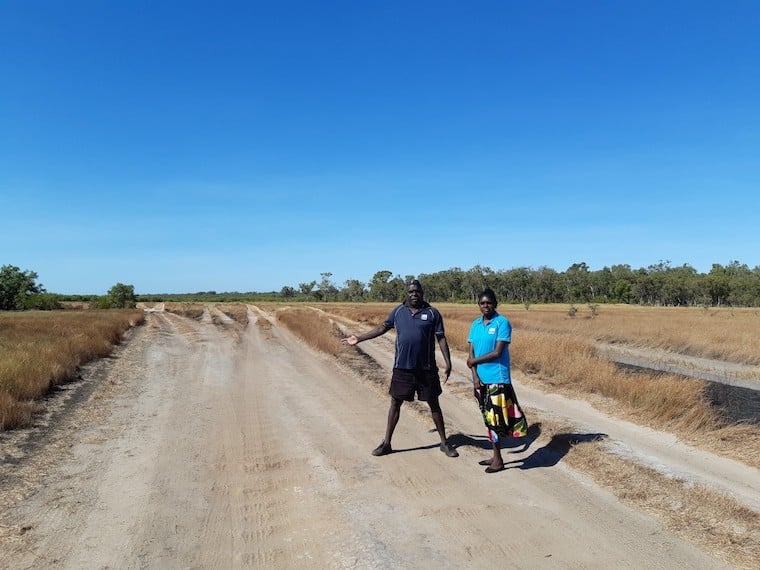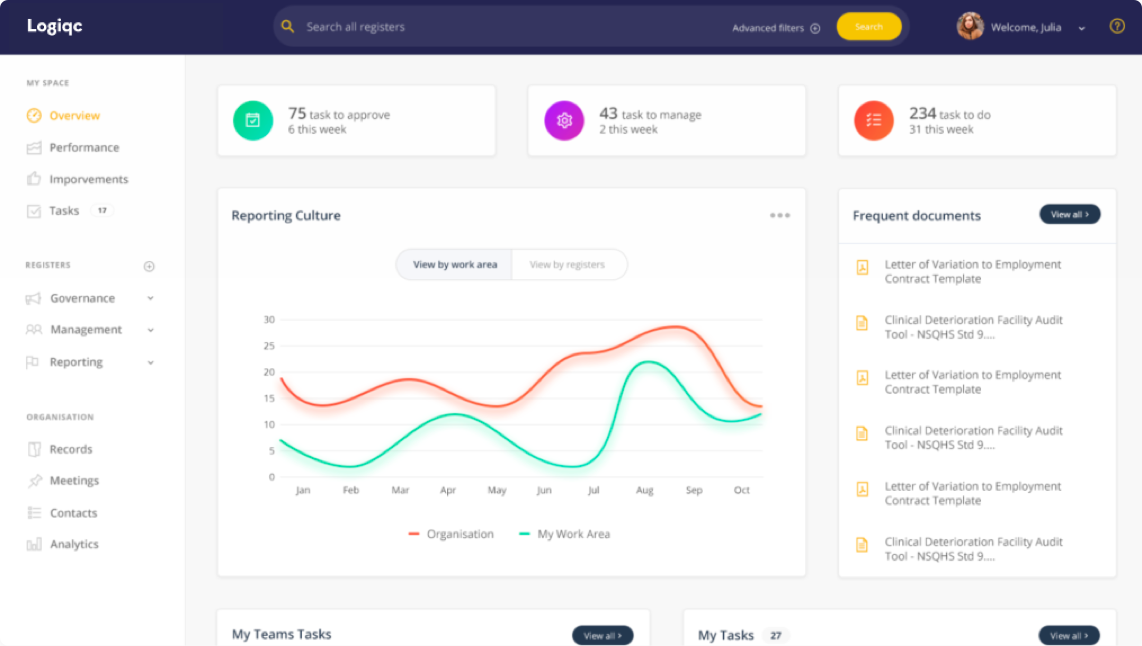Miwatj Health Aboriginal Corporation is an independent, Aboriginal-controlled health service delivering appropriate and comprehensive primary health care across East Arnhem Land in the Northern Territory. Its underlying philosophy is the fundamental right of Aboriginal people to control their own health services.
Established at Nhulunbuy in 1992, at a time when there were no doctors in the region’s bush communities, it now operates clinics at 7 locations and provides a regular outreach service to the Yolngu community.
ICT Manager Anthony Warn has been with Miwatj Health since mid-2019. As part of his role in delivering the ICT roadmap, he is managing the implementation of LogiqcQMS.
The need for a holistic system for managing quality
When I joined in 2019, we had a system for workplace health and safety (WH&S) and the rest of our processes were manual—a combination of documents, forms, emails. Technically, the WH&S system was more sophisticated than LogiqcQMS but it wasn’t deployed well and, while it did the task, it didn’t have high traction with staff. (Miwatj has a workforce of about 330.)
At the same time, there were some staff changes in the quality function and we had new people with experience with other products, including LogiqcQMS. They brought in a different perspective and questioned, where’s the holistic system for managing quality? We had a system—technology, policies, procedures—but it was not a tool that brought all those things together.
Why LogiqcQMS?
LogiqcQMS does what our previous system did, as well as expand the capability to all the quality, risk management and compliance obligations. We turned that idea into a business case to significantly expand the scope to include WH&S, compliance, risk management, document management and record-keeping, and save dollars in the process.
The commercial case stacked up just on WH&S alone and the business case to implement LogiqcQMS was approved in late 2019.
Implementing LogiqcQMS
We spent the initial few months grappling with the design process. Going to a systemised approach, there’s a lot of deliberation about the configuration. I think it proved a bigger cultural challenge for the organisation than anticipated—transitioning from existing systems and from verbal reporting to logging it, categorising it, assigning it to someone in a business-wide system.
Also challenging were the questions of: How do we define ourselves? How do we name things, categorise things? LogiqcQMS is challenging us to normalise our behaviour in the business because this is a system that everybody uses. And this is a big point. As part of your onboarding at Miwatj, you will record incidents and do entry-level activities in LogiqcQMS. So it’s a different way for 300-plus people. It’s a Miwatj way.
We did a soft launch between February and our “go live” in August 2020—6 months where we systematically migrated each of the core registers. We started with loading up documents, policies, procedures. The final piece was migrating the corporate risk matrix.
We did a big block of training with the LogiqcQMS team. Everyone was trained. We’re trying to more and more use their very good resources so that people can self-onboard. LogiqcQMS has comprehensive and detailed support and mostly we find we’re directing people to the how-to guides, which are consistent and well written, instead of us writing training materials.

Transparency and consistency – the 2 main benefits
We are absolutely seeing benefits already. Almost daily I see people referring people to functions or content in LogiqcQMS.
Transparency and process are the two core benefits we are seeing. LogiqcQMS is pushing us down a path of more transparency and a more consistent process. It is taking a lot of choice of how we do things out of individuals’ hands and putting it in corporate hands, which is giving us consistency, clarity and ultimately efficiency.
You see it and you feel it. People start communicating with you in a different way. I got an email 2 minutes ago that went to all staff, an update to the catering guidelines. It says, ‘Here’s the link’. Six months ago, an 8-page document would’ve been sent to 330 people. That’s it in action.
The content is controlled and we have a clear document management policy that says if you print this, no one should believe it—it’s uncontrolled. It sounds a little draconian, but the point is to have users question whether they are using the correct content.
Using LogiqcQMS to evaluate ourselves
Our clinics at Galiwin’ku, Gunyangara, Nhulunbuy and Yirrkala have all been assessed and meet accreditation requirements of Australian General Practice Accreditation Limited (AGPAL). Our quality team of 3 people are focused on clinical governance compliance. We have an audit coming up later this year and I can see the accumulation of records in the system.
We are increasingly using LogiqcQMS to evaluate ourselves. We don’t have an internal audit function but the system allows us to ask: Is this working the way we want it to? Are we doing what our policy says?
Responsive and solution-oriented support
Overall, the LogiqcQMS team are very responsive and as a customer that’s what you want. They listen. The individuals will find someone who can solve the problem if they can’t, or politely say, ‘We can’t fix that one for you. Put it on the development list’.
In a collective sense, they’re solution oriented. They’ve taken on board our feedback—some has been implemented and some is on the development list and we might get that in the future.
On the whole, we’re a happy customer and trying to get more out of the system.





